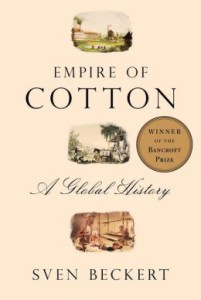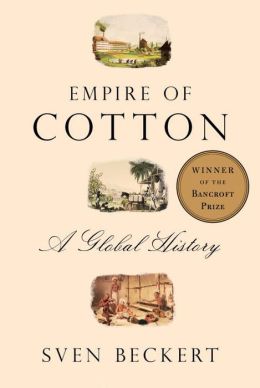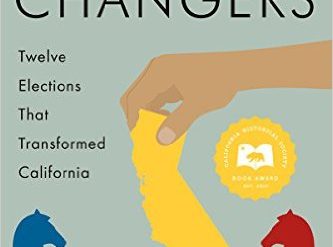
Estimated reading time: 5 minutes
Here’s capitalism reexamined, recasting the Industrial Revolution as a natural extension of the European mercantile expansion that preceded it. In Empire of Cotton, Harvard historian Sven Beckert asserts that the more familiar industrial capitalism that came of age in the nineteenth century was grounded in what he terms “war capitalism”—the relationships forged by the European conquest of the Global South by force—and, in particular, on slavery.
Slavery and colonialism were the driving force
“Slavery, colonialism, and forced labor, among other forms of violence,” he writes, “were not aberrations in the history of capitalism but at its very core.” Thus, powerful nation states were crucial to the development of industrial capitalism, first, because of their ability to subdue the peoples of Africa, Asia, and the Americas, where the industries of Europe and the United States obtained their raw materials, and, later, because they were able to bring force to bear to prevent workers from organizing.” Beckert goes on: “[T]he nineteenth century was an age of barbarity and catastrophe, as slavery and imperialism devastated first one pocket of the globe and then another. It is the twentieth century, by contrast, that saw the weakening of imperial powers and thus allowed more of the world’s peoples to determine their own futures and shake off the shackles of colonial domination.”
Empire of Cotton: A Global History by Sven Beckert (2014) 632 pages ★★★★☆
Winner of the Bancroft Prize
Capitalism reexamined: The cotton industry was central
For Beckert, the cotton industry was central to the development of capitalism and thus of the world as we know it today. “The empire of cotton was, from the beginning,” he writes, “a site of constant global struggle between slaves and planters, merchants and statesmen, farmers and merchants, workers and factory owners. In this as in so many other ways, the empire of cotton ushered in the modern world.”
To prove this provocative thesis, Beckert documents the history of the cotton industry in great detail. He writes convincingly. The cotton industry, he explains, was by far the largest manufacturing industry in the world from the beginning of the Second Millennium to the dawn of the twentieth century. Even in the nineteenth century, once the Industrial Revolution (literally) got up to steam, the cotton industry dwarfed the railroad, steamship, and telegraph operators so often held up as emblematic of that era.
The impact of the American Civil War
Empire of Cotton dwells at length on the American Civil War and its impact on the rest of the world. When the war broke out in 1861, the European yarn and textile manufacturers who dominated their economies were heavily dependent on raw cotton from the slaveholding U.S. South. In key countries, the South had a near-monopoly on the cotton trade. Once the federal government imposed a blockade on southern ports, shipments of cotton across the sea slowed to a mere trickle, the product of the very few successful blockade runners.
As a result, the Civil War led the European powers to build substantial new capacity to grow cotton in their rapidly expanding colonies in the Global South. This proved to be a seminal development in the history of cotton (and thus of the world), introducing the unfamiliar concept of wage labor to traditional societies in Africa, Asia, and Latin America (Brazil in particular) and laying the groundwork for the emergence of the anti-colonial movements that would rock the twentieth century.
More than you ever wanted to know about cotton
Fair warning to the reader who is easily bored and isn’t a speed-reader: there’s more here than you ever might have wanted to know about cotton (assuming you wanted to know anything at all). Beckert is such a careful historian that, when he sets out to illustrate a point, he includes not one, two, or even three examples but a laundry list of them. Yes, Empire of Cotton truly is A Global History, as its subtitle promises. There’s no mistaking that, because the author repeatedly cites examples from all over the globe. However, to my mind, it’s all worth it, if only for the pleasure of reading such a radical interpretation of economic history from a Harvard professor.
This is powerful stuff and must reading for anyone who wishes to understand the true history of capitalism.
For related reading
For broader perspective on the issues raised by Sven Beckert, see Born in Blackness: Africa, Africans, and the Making of the Modern World, 1471 to the Second World War by Howard W. French (An eye-opening account of Africa’s pivotal role in world history).
This is one of the books I’ve included in my post, Gaining a global perspective on the world around us.
It’s also included in my list of My 10 favorite books about business history.
You may enjoy browsing through 20 top nonfiction books about history.
And if you’re looking for a broader view of human history, check out New perspectives on world history.
And you can always find my most popular reviews, and the most recent ones, on the Home Page.



























